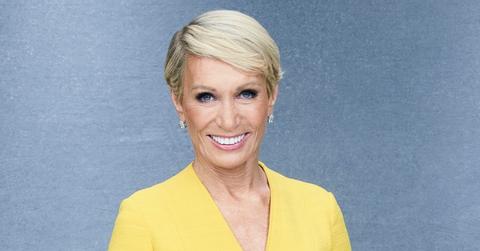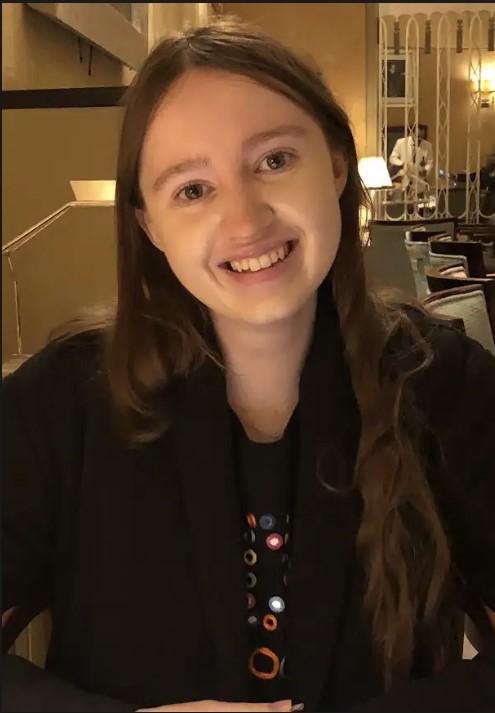Women Leaders In Business, Entertainment And More Who Are Neurodiverse

Powerful women within the public eye have raised awareness of the developmental and learning challenges they have faced. They have done this not only to make other neurodivergent individuals feel seen, but to share how they have used their diagnoses as an advantage in their journeys to success.
What is Neurodiversity?
As defined by Harvard Health, neurodiversity is a term “often used in the context of neurological or developmental conditions such as learning disabilities.” People who exhibit neurodevelopmental conditions are often referred to as neurodivergent.
The breadth, symptoms, severity and experience of the conditions can vary for every individual, and those impacted often have the ability to use their brain in different ways. Some commonly recognized conditions under the neurodiverse umbrella include ADHD, Autism Spectrum Disorder (ASD), dyslexia, and dysphraxia, among others.
Here are a few successful women who have spoken publicly about their experiences with neurodiversity:
Amanda Gorman, Poet and Activist
Poet and Activist Amanda Gorman has a lesser known condition named auditory processing disorder. In an interview with Oprah Winfrey, Gorman opened up about her childhood diagnosis of auditory processing disorder and a speech impediment. “I was born early, along with my twin, and a lot of times, for infants, that can lead to learning delays,” she shared. “One of my delays was in speech and speech pronunciation, and also the auditory processing issue just means I really struggle as an auditory learner.”
The Cleveland Clinic defines auditory processing disorder as “a condition where your brain can’t understand and interpret auditory signals the way it should,” and those with the condition may struggle to interpret particular sounds. Despite the many challenges faced, Gorman understands the positive strengths behind it. The effort put into learning words and sounds has been extremely influential in shaping her poetry.
Octavia Spencer, Actress and Producer
Academy Award-winning actress Octavia Spencer has never let her dyslexia diagnosis be a limitation in her life. As reported by Refinery29, Spencer understood from a very early age that dyslexia was no disadvantage or reflection of her intellect but could identify that her brain learns and approaches situations in a different way.
“I was a dyslexic child and am a dyslexic adult; that doesn’t really mean that you’re not intelligent — it just means that your brain functions differently,” the award-winning actress has said about her experience. “I just remember thinking differently. I could solve puzzles quicker than the average child. I would start with the mazes at the end and go to the front and be done in, like, 30 seconds. My deductive reasoning was very important.”
Spencer has since written children’s books, inspired by her very supportive teachers and the books they introduced her to, which had a significant impact on her life. She has also worked with Made By Dyslexia and has been an activist in ensuring more disabled individuals are being cast in Hollywood.
The Mayo Clinic defines dyslexia as a “learning disorder that involves difficulty reading due to problems identifying speech sounds and learning how they relate to letters and words.”
Greta Gerwig, Film Director, Writer and Actress
Academy Award nominated Director Greta Gerwig is known for feminist blockbusters including Little Women, Barbie and Lady Bird. Gerwig received an ADHD diagnosis as an adult, as revealed in an interview with The Observer. The National Institute of Mental Health describes ADHD as “being marked by an ongoing pattern of inattention and/or hyperactivity-impulsivity that interferes with functioning or development.” Although Gerwig did not elaborate further about the condition and the way in which it impacts her and her creative process, the willingness to share supports removing the stigma around the condition. Gerwig instead described her childhood and some of the hyperactivity she aligned with.
“Now, as an adult, I have ADHD – they diagnosed me. But as a kid, my mum was like, ‘Let’s sign her up for every activity. Let’s tire her out.’ I’ve always had a tremendous amount of enthusiasm. I was just interested in, like, everything. I had a really active imagination. I had a lot of really deep feelings. I was emotional.”
Barbara Corcoran, Executive And Investor
Business tycoon, investor, and star of TV’s Shark Tank, Barbara Corcoran has proudly attributed her dyslexia as a key factor that has shaped her success.
Corcoran faced adversity and struggled to fit in during her childhood at school. It was only once her own son was diagnosed with the condition when she realized she had it herself. Research has shown that dyslexia is known to be common among entrepreneurs, and Corcoran feels it is the reason behind her success in business.
Speaking of her experiences on the podcast, “Lessons in Dyslexic Thinking,” she shared, “I don’t think you get the same motivation or the ability to deal with rejection the way you do if you’re dyslexic… Nobody could tell me what to do. Nobody could tell me what colors to pick, what people to choose, what kind of business I was going to be in,” she said. “I was free to do anything—because I was dyslexic. So you wrote your own bill of goods, so to speak.”
Simone Biles, Olympic Gymnast
Iconic Olympian for Team USA, Simone Biles is the most decorated gymnast in history. She has never let her ADHD diagnosis stop her from winning 11 Olympic medals. She has shared that she has been taking medication to support her symptoms since childhood and has been unapologetic in talking about her condition, highlighting the importance of being unashamed about ADHD.






